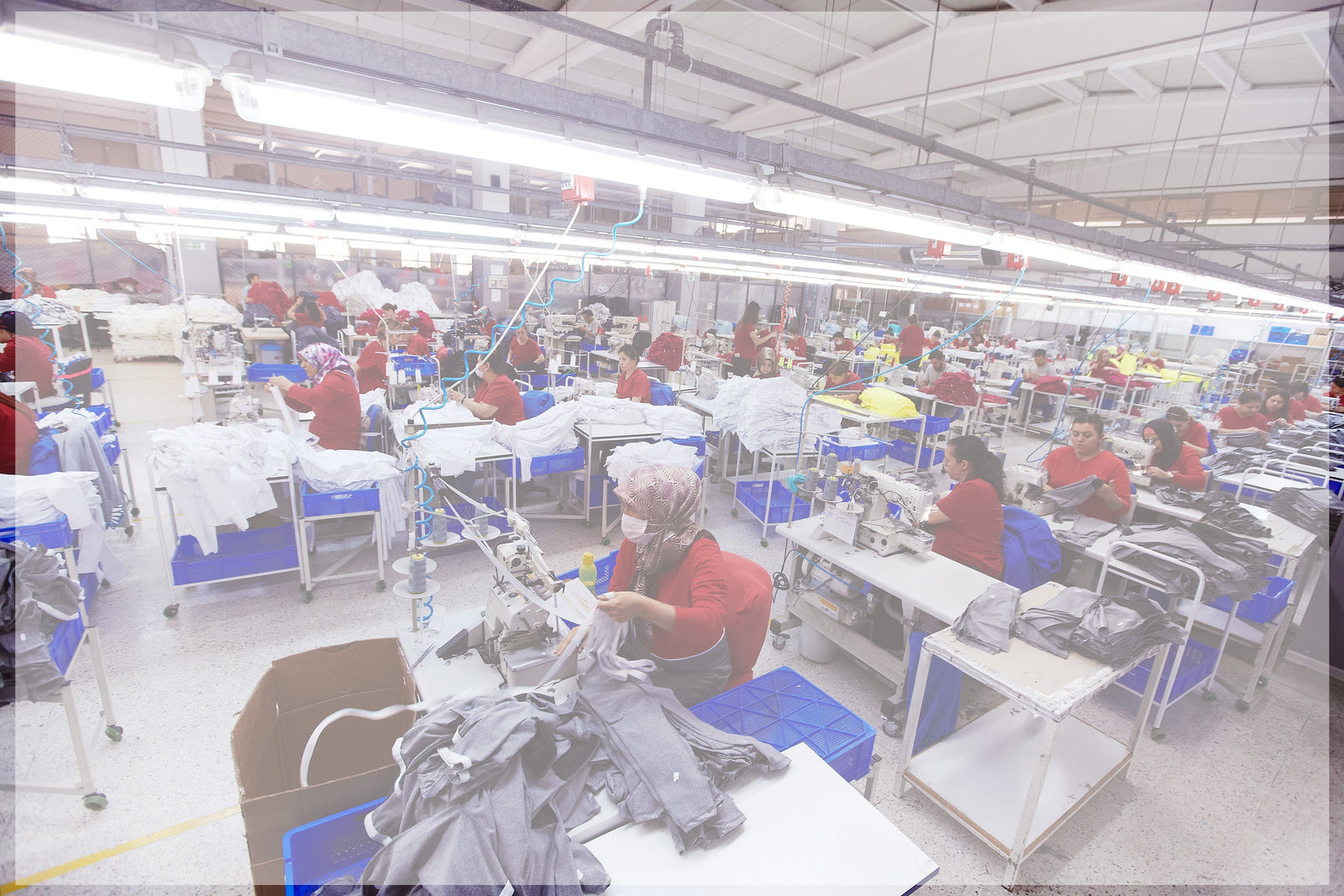-FREE SHIPPING ON U.S. ORDERS OVER $150. ECO-FRIENDLY PACKAGING ALWAYS- JOIN PANEROS REWARDS-
-FREE SHIPPING ON U.S. ORDERS OVER $150. ECO-FRIENDLY PACKAGING ALWAYS- JOIN PANEROS REWARDS-
Shop
5 THINGS CONSCIOUS SHOPPERS CONSIDER: PART 2-RESPONSIBLE MANUFACTURING

As an eco-conscious shopper, where your clothes were made and who made them matters to you.
Responsible Manufacturing
Have you ever considered who and where your clothes came from? For instance, China, Bangladesh, Vietnam and India are some of the top clothing manufacturers in the world - if you take a look at the tag inside any of the garments you're wearing, there's a good chance at least one of them was made in one of these countries. Most people probably don't think about this or wonder why it matters. Unfortunately, child labor, unsafe and unethical business practices still exist at a large scale in the fashion industry today.
Why does this matter?
According to Unicef, almost 11% of the world’s children (about 170 million people) are involved in child labor, and many of these children work within the fashion supply chain. This problem is actually quite complicated... the children's parents are tricked by promises of safe working conditions and a chance for education and more opportunities for their children made by labor recruiters. Unfortunately, those promises are often broken and the children are put into sweatshops once recruited.
Even before it gets to the factory, natural fibers are harvested from plants and spun into yarn to create the fabric. Non-organic farming can entail prolonged unprotected exposure to pesticides and illegal wages.
Unfortunately, child labor, unsafe and unethical business practices still exist at a large scale in the fashion industry today.
Not all factories are created equal and are built to adequately protect their workers. In the past 10 years alone, multiple unsafe textile factories have collapsed, killing thousands of workers.
For fabric production processes that require a lot of energy or tree harvesting, there are additional environmental ethics concerns. Some countries rely on fossil fuels or inefficient energy generation that disproportionately contributes to global warming (CO2 emissions), while other countries have a poor history of deforestation.
There is hope and more brands are looking into their supply chains more thoroughly. Today, many brands are disclosing their supply chain to increase transparency, and you can look for the information on their websites. If companies are hesitant to disclose information about their manufacturing practices, it might be a red flag.
What Paneros is doing about it:
Paneros will never work with factories that employ children or incorporate unsafe or unethical conditions for workers. We personally visit each factory we work with, and will soon be featuring profiles of many of the employees and locations on our website. Being responsible isn’t always the cool thing to do except for when it comes to how your clothes are made.
When you shop with us, you know who made your clothes.
Continue reading on Part 3, Quality over Quantity


